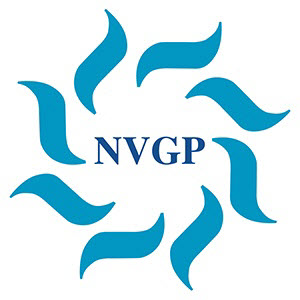Group Climate Development
Thorgeirsdottir, Maria T.; Bjornsson, Andri S.; Arnkelsson, Gudmundur B. Group Dynamics. Sep2015, Vol. 19 Issue 3 Group Climate Development in Brief Group Therapies: A Comparison Between Cognitive-Behavioral Group Therapy and Group Psychotherapy for Social Anxiety Disorder Verslag: Willem de Haas
Samenvatting
This study was designed to explore differences in group climate development between 2 brief group therapies, cognitive-behavioral group therapy (CBGT) and group psychotherapy (GPT), using multilevel growth curve analysis. Participants were 45 university students with a primary diagnosis of social anxiety disorder (SAD), randomly assigned to either of the 2 treatment conditions. Each group consisted of 8 weekly 2-hr sessions and members completed the Group Climate Questionnaire after each session. Similar patterns were found in both treatment conditions; engagement increased throughout the sessions, avoidance decreased, and conflict was overall low. The results support the hypothesis that brief group therapies (consisting of less than 10 sessions) will stay in the engagement phase of MacKenzie's 4-stage developmental model. There was less conflict in the CBGT groups compared with GPT, reflecting the more dynamic and interactive nature of the latter treatment. Conflict was lower than reported in previous studies, which may be attributable to the SAD diagnosis of group members. Future directions involve comparing group climate development between treatments of varying duration, between different treatment orientations and with members diagnosed with different disorders
Wat betekent dit voor de groepspsychotherapie?
In dit vergelijkend onderzoek is gekeken of de faseontwikkeling in de groep gelijk of anders verloopt in 8 sessies Cognitieve groepstherapie voor sociale angst of 8 sessies Interpersoonlijke (Yalom) Groepstherapie voor dezelfde stoornis. Conclusie: in beide vormen van Groepstherapie zien we dezelfde ontwikkeling. Die groepsontwikkeling is zichtbaar, maar In beide vormen van groepstherapie kwam die niet verder-vanwege de korte duur-dan de Engagementfase van het 4 fase-model van Mc Kenzie.
Interessant!
Een voor mij onbekende ontwikkelingstheorie die jammer genoeg hier verder niet wordt uitgelegd. De therapeutische methode zorgt dus niet voor een verschil in de groepsontwikkeling. NB: een van de auteurs (Bjornsson) heeft in een ander onderzoek de resultaten van deze twee vormen van kortdurende therapie voor de behandeling van sociale angst onderzocht en vergeleken. (zie bij Evidence Based Groepstherapie onder de sublink Sociale Angst Stoornis)
| Relevantie voor richtlijnen | O O O O O |
| Relevantie voor onderzoek | O O O O O |
| Relevantie voor groepsbehandeling | O O O O O |
| Relevantie voor teamcoaching | O O O O O |
| Relevantie voor groepsdynamicaopleiding | O O O O O |
| Relevantie voor groepstherapieopleiding | O O O O O |
| Relevantie voor KP opleiding | O O O O O |
